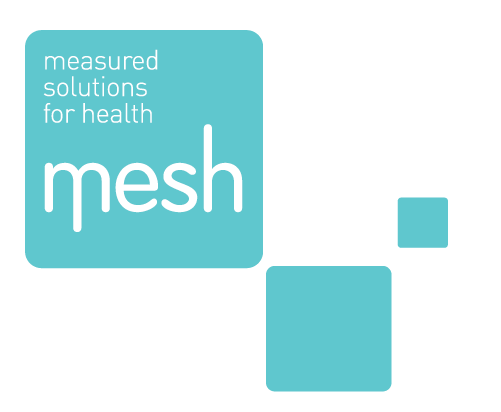The RiiQTM and flu-iiQTM have been translated to over 50 languages using best-practice translation protocol. This includes linguistic, cultural and measurement adaptation, with triangulation across existing translations to maximise measurement equivalence between languages and countries.

Our translation standards
International standards exist to guide translation. It is not a simple matter of getting 'someone' to translate the words. Each concept must be translated to match the original English, both in terms of cultural equivalence and measurement equivalence.
Our translation protocol covers the selection of appropriately qualified translators, forward translation, back translation and discussions with personnel who are experienced with the target languages in the community setting.
Our process culminates in an intensive translation consensus meeting chaired by the author of the RiiQ™ and flu-iiQ™, Dr Richard Osborne, with translators and relevant bi-lingual clinical personnel. During this meeting each and every word and phrase of the translation is discussed and considered.
Dr Osborne is an international expert in translation and cultural adaptation of questionnaires. Having developed and refined procedures over the past 15 years 1, he has personally chaired over 200 translation consensus meetings (ranging between 3 and 12 hours each) across all major language groups. His processes are more comprehensive than standard published guidelines2,3,4. With international colleagues he has conducted very large and comprehensive tests of translation protocols5.
New translation requests
To ensure the integrity of the questionnaire is maintained, the RiiQ™ and flu-iiQ™ can only be translated through MESH. This translation process can take up to eight weeks, depending on the language, availability of suitably qualified translators and the identification and availability of suitable local participants for the translation consensus process. Clients requiring additional languages are therefore advised to allow plenty of lead time to ensure we can meet your deadlines.
Use of all existing translations is included in the licence fee. A translation fee is only charged when studies require a translated version of the RiiQ™ or flu-iiQ™ that does not already exist. All translations remain the property of the questionnaire’s developer.
Available Languages
| Language | Country | flu-iiQ™ | RiiQ™ | |
|---|---|---|---|---|
| 1 | Afrikaans | South Africa | ||
| 2 | Arabic | Israel, UAE | ||
| 3 | Bengali | India | ||
| 4 | Bulgarian | Bulgaria | ||
| 5 | Chinese (traditional script) | Hong Kong | ||
| 6 | Chinese (simplified script) | China, Singapore, Malaysia | ||
| 7 | Czech | Czech Republic | ||
| 8 | Danish | Denmark | ||
| 9 | Dutch | Netherlands | ||
| 10 | Dutch | Belgium | ||
| 11 | English | all English speaking regions | ||
| 12 | Estonian | Estonia | ||
| 13 | Finnish | Finland | ||
| 14 | French | France, Belgium | ||
| 15 | French | Canada | ||
| 16 | German | Germany | ||
| 17 | Gujarati | India | ||
| 18 | Hebrew | Israel | ||
| 19 | Hiligaynon | Philippines | ||
| 20 | Hindi | India | ||
| 21 | Hungarian | Hungary | ||
| 22 | Italian | Italy | ||
| 23 | Japanese | Japan | ||
| 24 | Kannada | India | ||
| 25 | Korean | Korea | ||
| 26 | Latvian | Latvia | ||
| 27 | Lithuanian | Lithuania | ||
| 28 | Malay | Malaysia, Singapore | ||
| 29 | Malayalam | India | ||
| 30 | Marathi | India | ||
| 31 | Norwegian | Norway | ||
| 32 | Polish | Poland | ||
| 33 | Portuguese | Brazil | ||
| 34 | Romanian | Romania | ||
| 35 | Russian | Russia, Israel, Ukraine | ||
| 36 | Sepedi | South Africa | ||
| 37 | Sesotho | South Africa | ||
| 38 | Setswana | South Africa | ||
| 39 | Slovak | Slovakia | ||
| 40 | Spanish | USA, Mexico | ||
| 41 | Spanish | Spain | ||
| 42 | Spanish | Argentina | ||
| 43 | Spanish | Chile | ||
| 44 | Spanish | Colombia | ||
| 45 | Spanish | Peru | ||
| 46 | Swedish | Sweden | ||
| 47 | Tagalog | Philippines | ||
| 48 | Tamil | Singapore, Malaysia | ||
| 49 | Telugu | India | ||
| 50 | Thai | Thailand | ||
| 51 | Turkish | Turkey | ||
| 52 | Ukrainian | Ukraine | ||
| 53 | Vietnamese | Vietnam | ||
| 54 | Xhosa | South Africa | ||
| 55 | Zulu | South Africa |
1 Hawkins M, Osborne RH. Translation Integrity Procedure (TIP). Version 5. Swinburne University of Technology, Victoria, Australia, 2019.
2 Guillemin F, Bombardier C, Beaton D. Cross-cultural adaptation of health-related quality of life measures: literature review and proposed guidelines. J Clin Epidemiol 1993 Dec;46(12):1417-32.
3 Koller M, Aaronson NK, Blazeby J, Bottomley A, Dewolf L, Fayers P, et al. Translation procedures for standardised quality of life questionnaires: The European Organisation for Research and Treatment of Cancer (EORTC) approach. Eur J Cancer 2007 Aug;43(12):1810-20.
4 Wild D, Grove A, Martin M, Eremenco S, McElroy S, Verjee-Lorenz A, et al. Principles of Good Practice for the Translation and Cultural Adaptation Process for Patient-Reported Outcomes (PRO) Measures: report of the ISPOR Task Force for Translation and Cultural Adaptation. Value in Health 2005;8(2):94-104.
5 Epstein J, Osborne RH, Elsworth GR, Beaton DE, Guillemin F. Cross-cultural adaptation of the heiQ questionnaire: experimental study showed expert committee, not back-translation, added value. Journal of Clinical Epidemiology 2015;68(4) 360-369
The licence fee for the flu-iiQTM or RiiQTM, includes the use of any of the 50+ existing translations.


